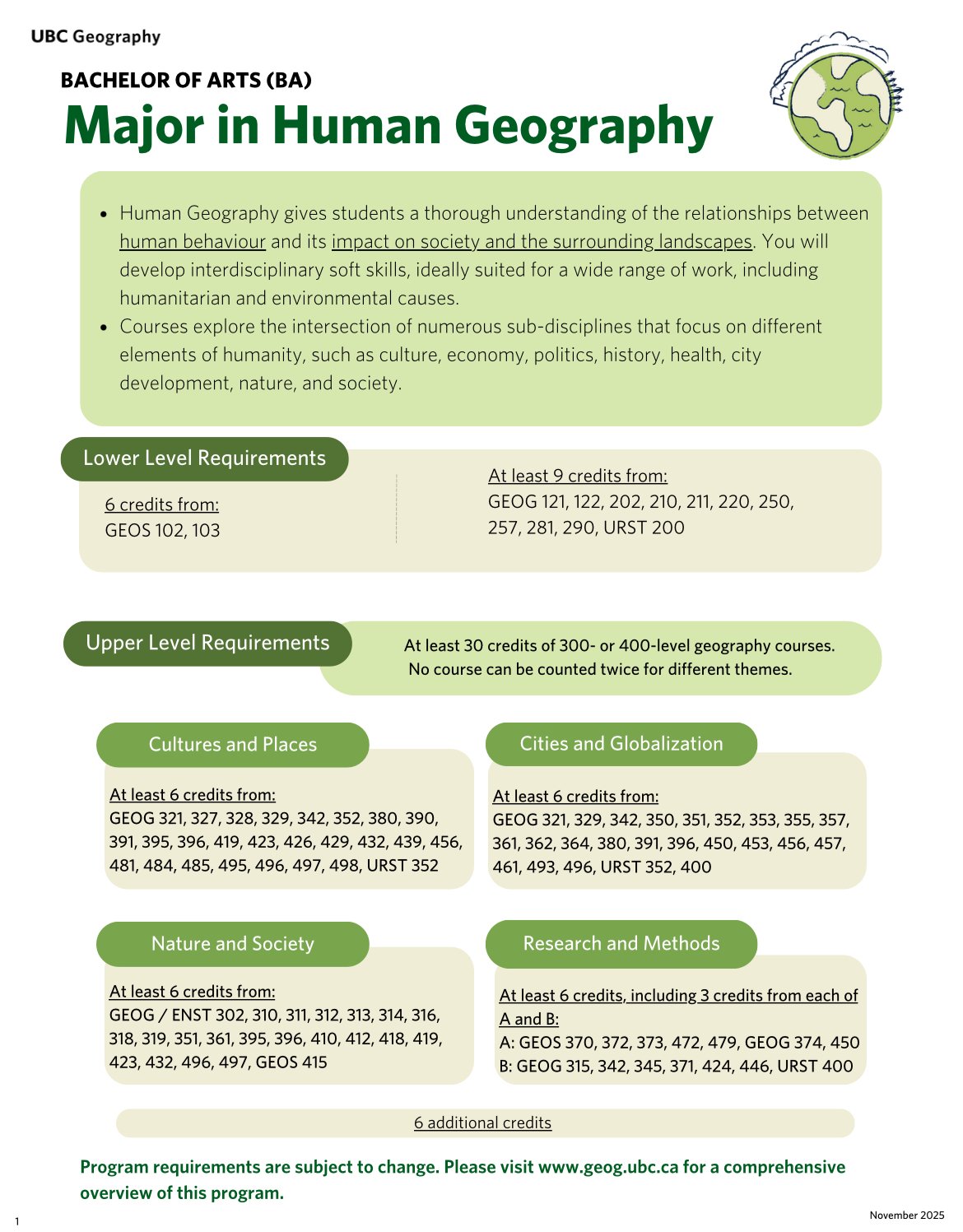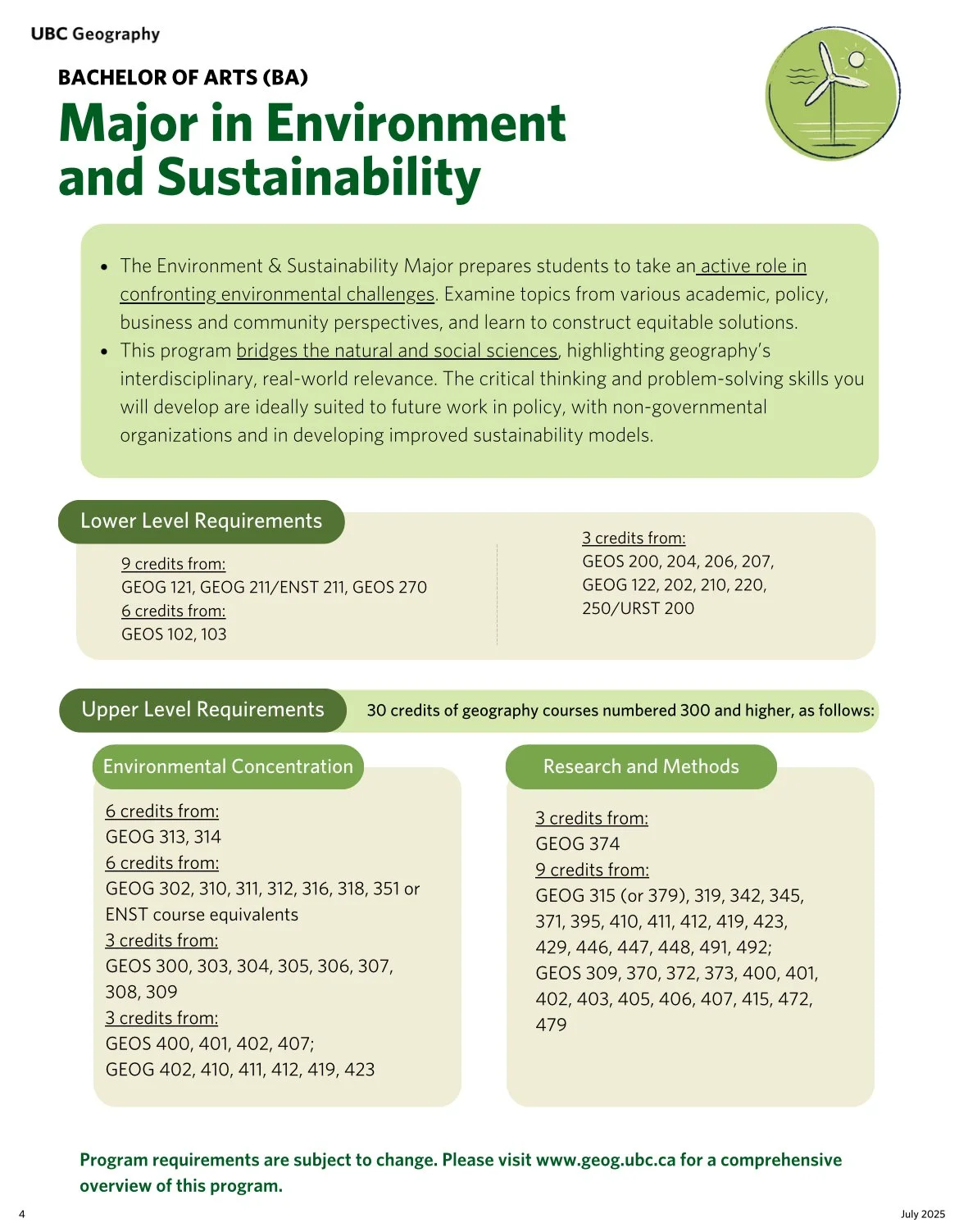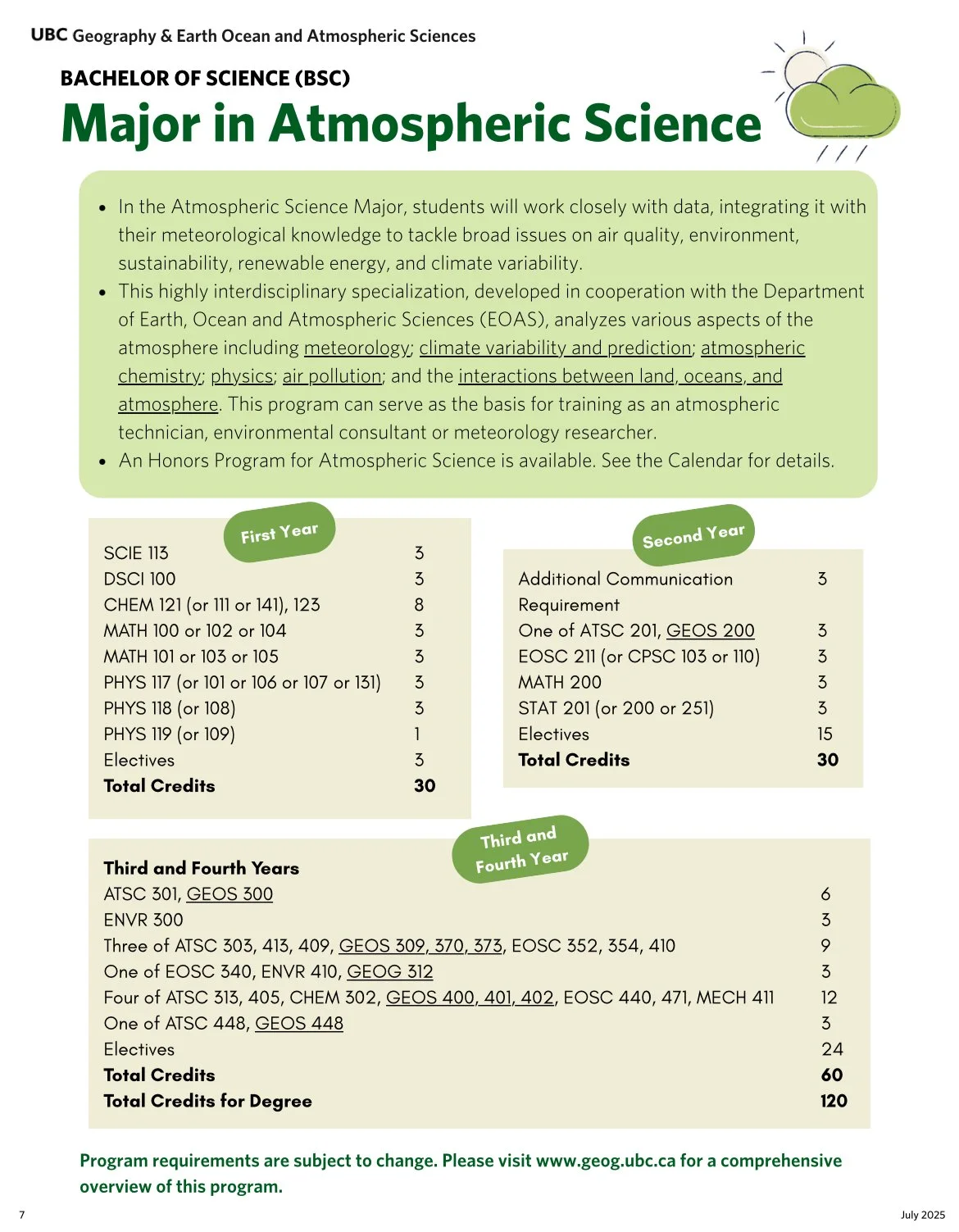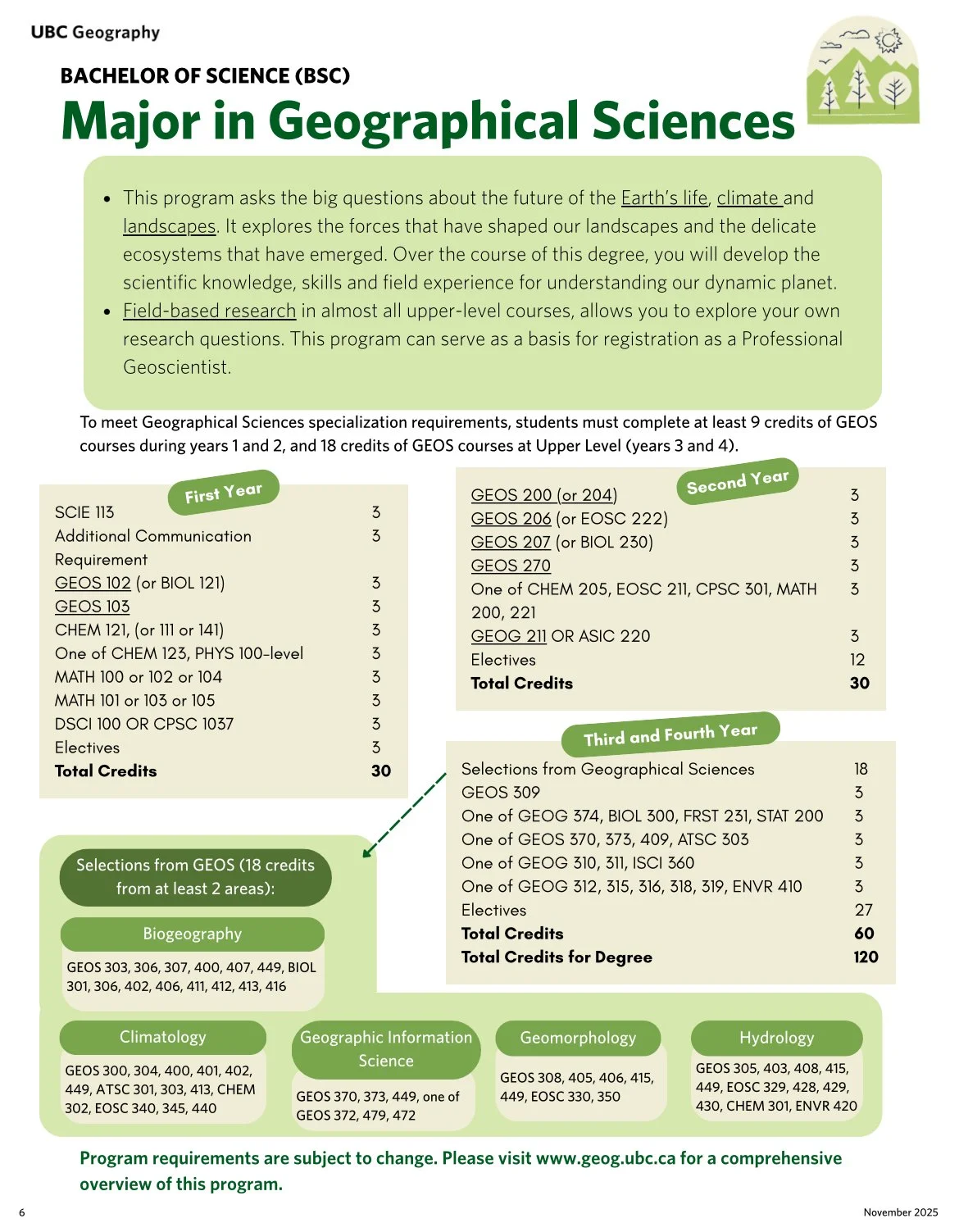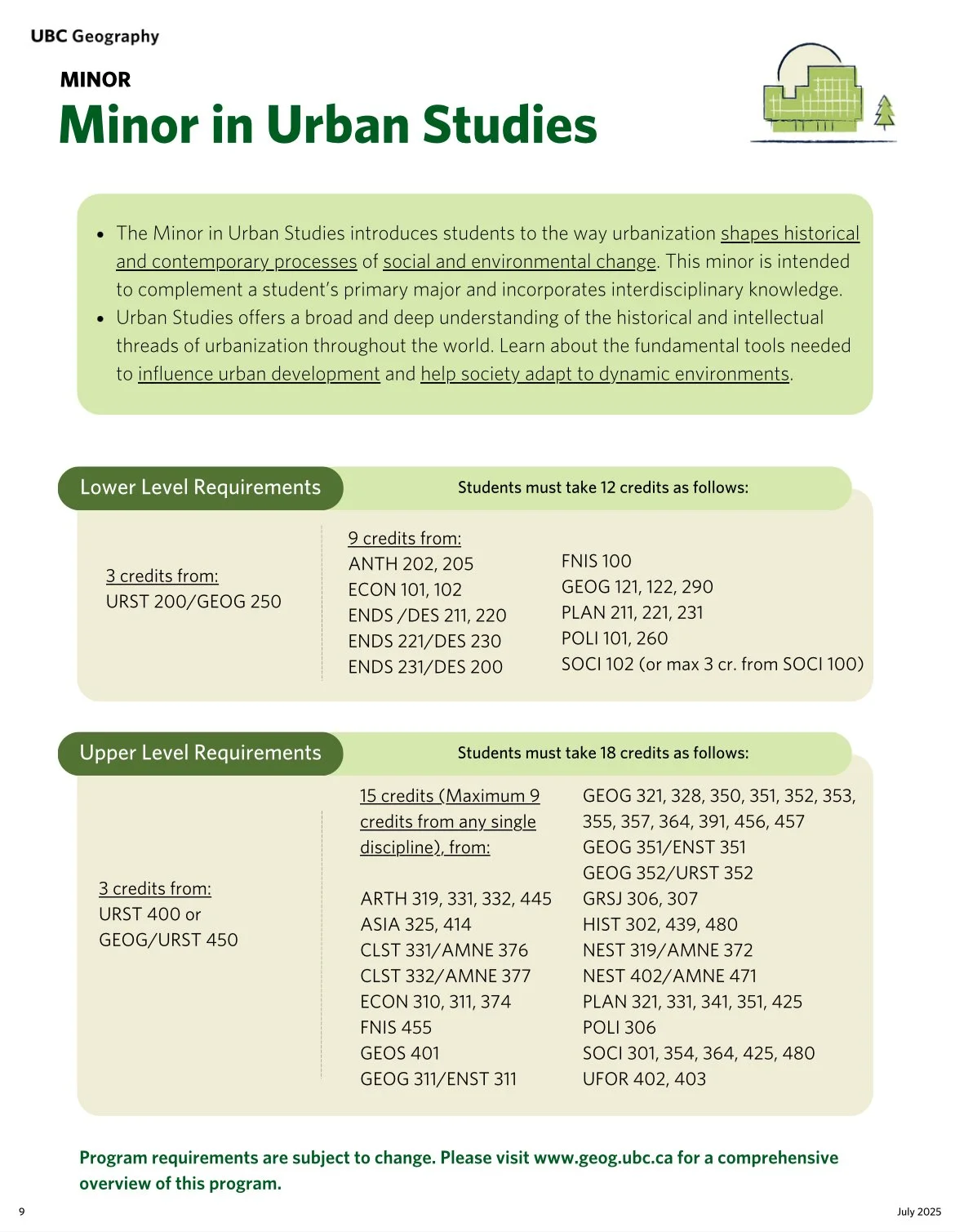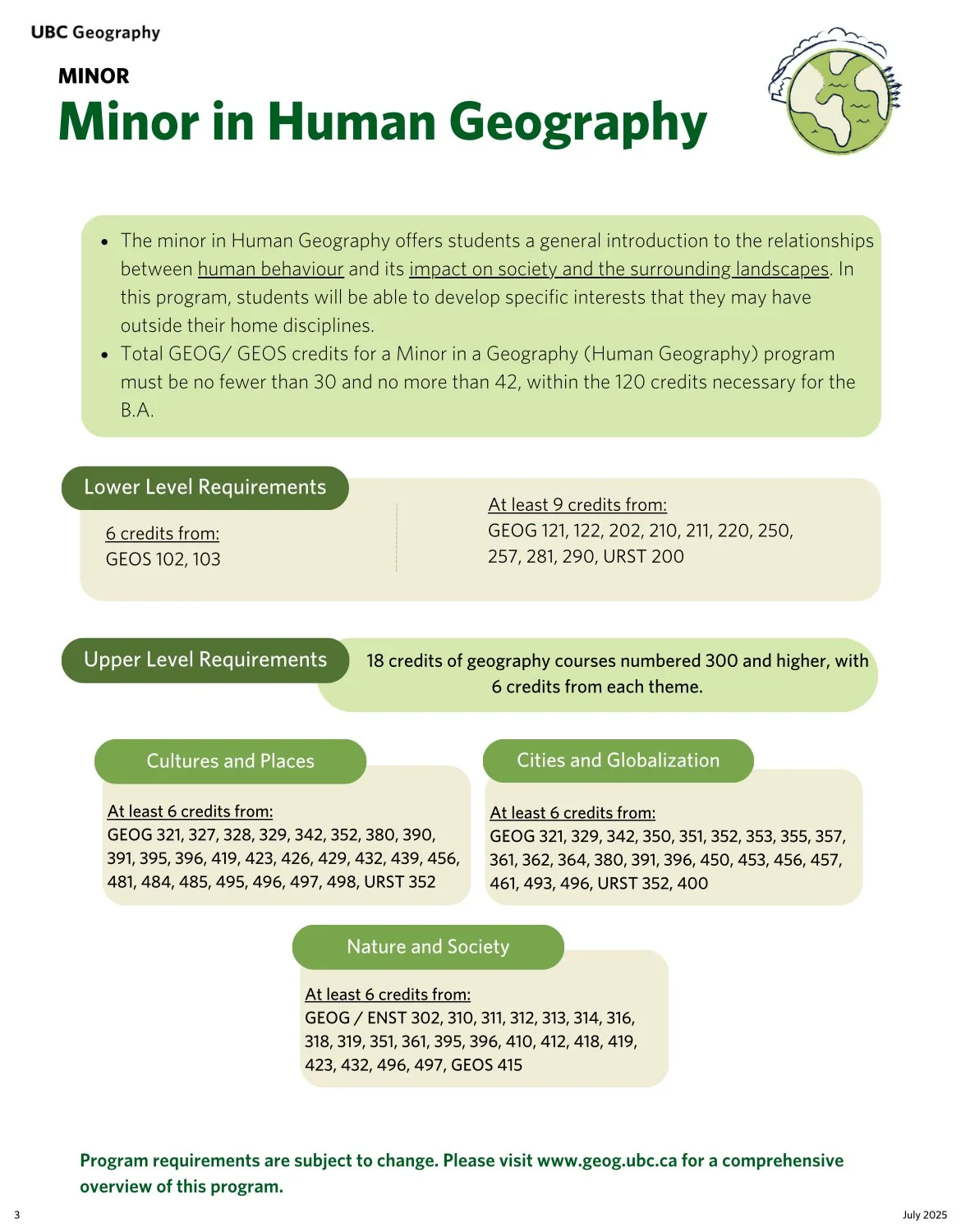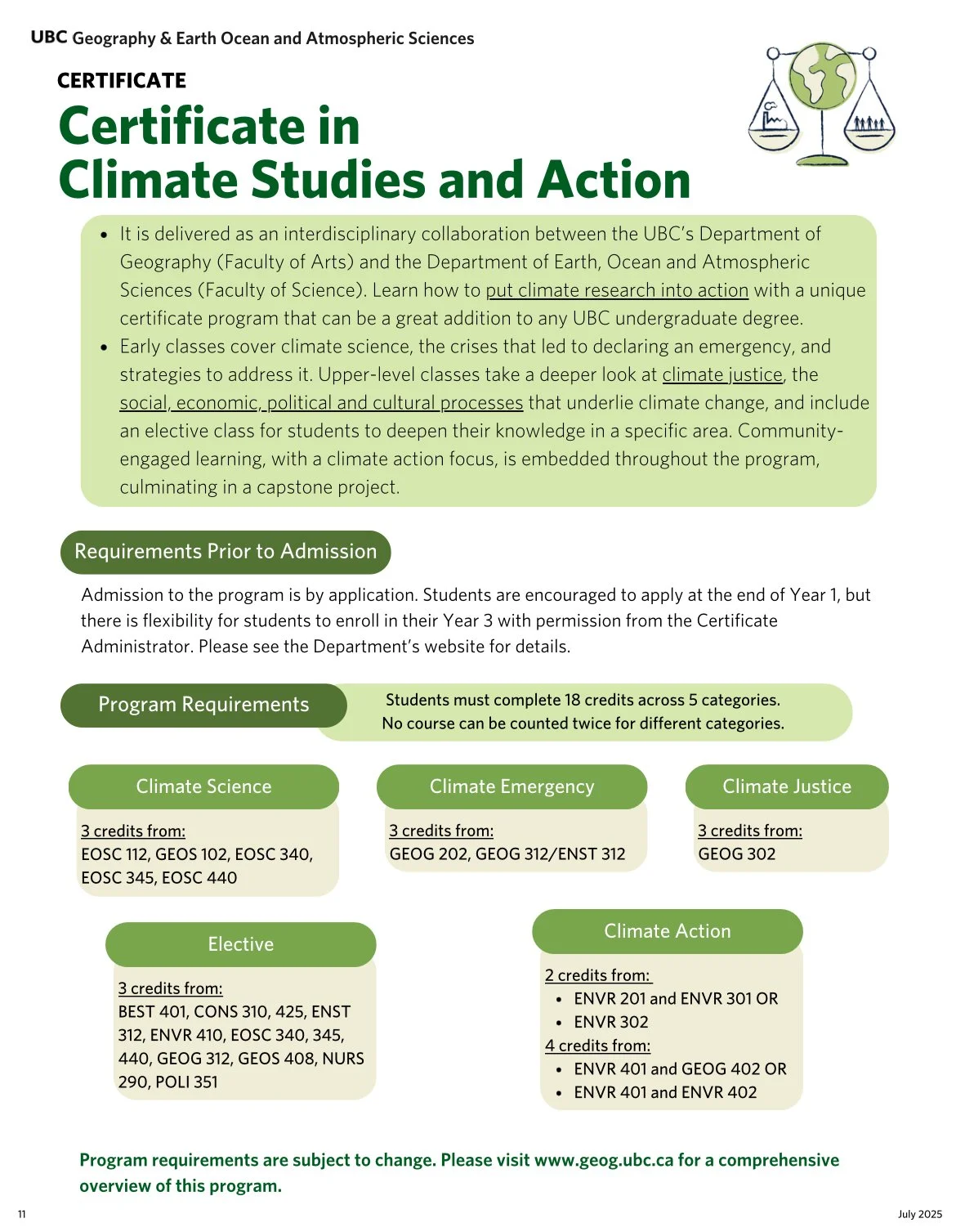
Explore Your Path in Geography
Welcome to the Geography Students' Association’s hub for academic resources! Whether you're exploring a Geography major, planning your degree, or looking for the right classes to match your interests, we've got you covered.
This page is designed to help students navigate Geography-related programs with ease, including course recommendations, major requirements, and degree planning tips. With these extra resources, we hope to support your academic journey in Geography.
Program Requirements
Here are some informational sheets outlining the program requirements for the different BA and BSc programs in Geography, Earth & Ocean Sciences and SCARP.
Student Stories Project
With this GSA initiative, in collaboration with UBC Geography, you can hear directly from graduates and undergraduate students about their experiences in the diverse courses offered by the UBC Department of Geography 🌎
Below you can find detailed interviews and course descriptions for both GEOG and GEOS classes.
-
Workday description: Biogeographic concepts in understanding responses in ecosystems to environmental change at global, regional, and local scales. Conservation issues such as the loss of biodiversity and endangered species.
Recommended prerequisites: one of BIOL 230, GEOB 207, GEOS 207, FRST 201
-
Workday description: Aerial photography; measurement from aerial photographs; photo-interpretation in geographic analysis; remote sensing of the earth's surface and atmosphere.
Recommended prerequisites: one of GEOB 270, GEOS 270, or third-year standing in ENSC or GEOS (or GEOB) specializations.
-
What does this course cover?
The construction of Canadian political space after Confederation, aboriginal-newcomer relations, regional development and conflict, industrialization, urbanization, and war.
Pre-reqs: none
-
This certificate is action-oriented and designed to give students an interdisciplinary understanding of the climate crisis and equip them to engage in effective climate responses. It is open to all undergraduate students at UBC, the certificate aims to further climate education across all disciplines. Each cohort participates in a Capstone project class where they work with community partners to tackle climate change related issues and put their climate actions skills to use on real-world projects.
Undergraduate Certificates are small undergrad programs, similar to a minor. A KEY DIFFERENCE is that all of a student’s credits in the Certificate in Climate Studies and Action can also be applied to their primary degree program, if they are eligible in both places.


